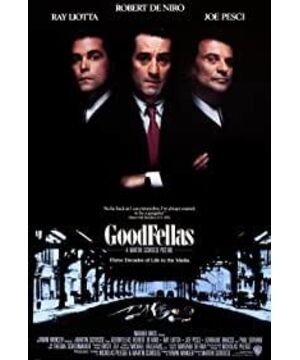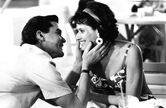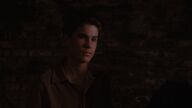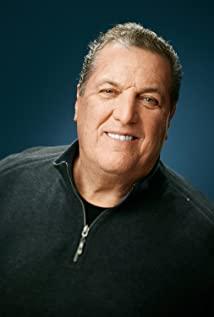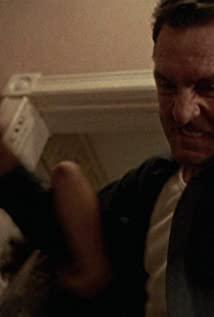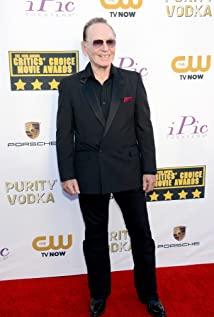The gang was not Henry's way out, he was just volunteering to throw in this big dyeing vat. It is explained in the original book that Henry’s family is an Irish immigrant (mother is of Italian descent). There are eight children in total. One son is severely disabled. His father is a conscientious electrician. He never skips work and actively participates in colleague gatherings. Sun Tzu, but the hard work did not return too much, the family is always on the line of food and clothing. This defeated man always fought Henry, who had no intention of learning, until Henry believed that Paul Wario, the crime leader on the other side of the street, was his true owner. Don't follow the father's path. "Who is Knocking on My Door" compares Paul's relationship with Henry, Jimmy, and Tommy to King Arthur and the three Knights of the Round Table. I think this is closer to my father and three rebellious sons: after finishing the ticket at the airport. After the big robbery, they quietly gave Paul a filial piety money.
So the twelve-year-old Henry started his gang life, running errands for you "wiseguy" with straight suits and shiny backs, drinking hot black coffee and smoking big cigars (though he is not used to it) as early as The other boys had already accumulated a considerable fortune when they were still crying for their fathers and mothers. There is a detail in the original book that is not in the movie. It is about when Henry Jr. skillfully docked Paul's black Cadillac in place, his electrician father, who had never touched the steering wheel in his entire life, hid behind the wall and looked at him secretly. A little man who didn't even touch the side of the American Dream. In fact, when Henry grows up, their boys have been divided into "workguy" and "wiseguy." The only way to vent pressure is to beat his wife. If you were from that neighbourhood, what would you choose in the face of being drunk and diligent in the future?
The sad thing is that even for Paul, Henry's focus still remains on money and status, and he has never mentioned the truth. His narrative always focuses on the same keyword "lifestyle", and his eyes are always focused. Compared with Yu Fanrong and flashy, even his children seem insignificant: "Be treated like a movie star. There are bags of jewellery in the kitchen and a whole jar of white powder beside the bed. You can just bet on a weekend. You can also borrow usury to pay off gambling debts by dropping 20,000 to 30,000. When you run out of money, you can go out to snatch and buy slips, lawyers and even judges. Everyone will accept bribes as long as we are willing to pay." Jimmy, who never blinks when he kills innocent people There is a deep friendship with Tommy. For example, in the 109th minute, Jimmy was as happy as a child when he learned that Tommy was expected to join the Mafia-but Henry was not moved at all. In that shot, Jimmy even appeared to be happy. Kind of stupid. Henry is undoubtedly a selfish bastard, but Karen married him recklessly just because of a handsome pistol. The expansion of his vanity is jaw-dropping, no wonder the tragedy is ushered in. Half an hour after the opening, the long shot of Henry taking Karen into the luxurious clubhouse from the back kitchen shows that in the eyes of Karen who has not been involved in the world, Henry, who is already in his early twenties, is a godlike god, and this Compared with men who have been on the street for many years, boys of the same age have almost no deciduous teeth.
As the jewel in the palm of the Jewish family and Xiaojiabiyu (the hardworking Jews and the unruly Italians have always disliked each other), Karen was extremely afraid of the middle-aged life full of young children crying and neighbourhood chattering, she thought All she wanted was to be taken by Henry to all kinds of places that seemed to her ordinary girl to be very advanced, and when Henry gave her a stack of cash to buy clothes, she immediately squatted down to give him oral sex (51st minute) . Karen's mother questioned "Henry often doesn't come home at night, your father never does this", she heard Karen furious and yelled: "He won't go out at all!" Karen entered into a marriage in which she wanted to share her husband with many women and was getting deeper and deeper in the quagmire of drug trafficking, and was unable to escape the middle-aged dedication of her energy to her children and the kitchen.
Henry, who has countless mistresses, has no guilt for Karen, just as he has no guilt for violating the agreement with Paul and engaging in drug trafficking; in other words, he has not evolved the "guilt" instinct that human beings are gradually losing. Karen was doing her best to manage the "business" for her husband while washing, cooking and raising her children. When she finally turned to Henry with a gun because she could no longer bear the increasingly rampant mistress (still because she loved him too much), Henry not only didn't feel that he was wrong at all, but he cleaned up his wife. However, when the heroin was washed into the sewer and Henry was at a loss, he faced Paul "You look at my eyes and lie to me, you use me as a fucking jerk, it seems that I am nothing to you", He sincerely feels that he has been wronged (while swearing by his children while lying): 3200 bucks for a lifetime. The implication is that I lied to you for a lifetime and you gave me 3200 yuan, which is too little!
But to be honest, Paul is very interesting to Henry. If he is really cold-blooded, he will probably be knocked on the spot; but not only Paul in the movie has been so sad that he has no energy to scream, but the original book also says, He squeezed money into Henry's hand and turned around and cried. Paul had always used the talented Henry as his son. When he was fourteen, Henry discovered a big business opportunity for the first time. Paul was so proud that he moved out a big mirror. , To be used to make a tuxedo for Henry. As for the fuse that made Henry join the FBI, that is, Henry suspected that Paul was going to perform a mission in an out-of-state to destroy him, it seemed like a delusion of drug inhalation-it really took such a big expense to kill him. Zhou Zhang? In order to advance this layer of irony, when discussing the "witness protection plan" with the FBI, even though Karen kept saying "I can't bear not seeing my parents", Henry was only obsessed with whether he could be arranged to hide in a warm place. As if his own family did not exist (in sharp contrast, Tommy, a 100% Italian, was a particularly filial and good son, Henry really combined the shortcomings of Italians and Irish), said to his wife The phrase "whatever you do", even more inadvertently tells the truth: in fact, if necessary, he can throw away his wife and daughter. Therefore, the real idea of Xixosses was the line of a defense lawyer in the court: "People call traitors "rats" because rats can do anything in order to survive..."
The first time I watched "Good Guy" was about seven years ago, and after discussing with my classmates, we also thought that Henry was a person of good nature, at least not as bad as Jimmy and Tommy. But the more I look back, the more I feel that Henry is the biggest condemnation of the whole film. He is simply a traitor by nature. To his family, he was indifferent and cruel, only staring at their faults without considering his own responsibilities. To the "brothers", he also judged with a purely utilitarian vision, and even never mentioned that he himself was involved in several robberies and murders. The important role of this, through his eyes, he can only see the tyranny and absurdity of Tommy and Jimmy, he never regarded them as friends; until the end, he walked out of the apartment as an "ordinary person", still hanging The shameless smile of the villain in the court missed his only concern, "lifestyle". What’s more terrifying is that through the soundtrack of the most sincere love sacred song "Layla" of the 20th century, that hearty and bloody cleansing exudes a dazzling romance and ecstasy-this is Henry for this. The true view of everything: love from the heart. He was not born bloodthirsty and could distinguish right from wrong, but he gradually lost his "human" feelings in the crazy and empty pursuit of material and face; like him, Karen also became a victim of vanity. The more I thought about it, the more I felt a little scared: if I have been misled by this maze, does it mean that there are gaps in my heart that can allow these things to slide in?
Another translation of "The Good Guy", "The Way of Pirates", is really wonderful. It is clearly written in the original book that the rise of organized crime contains historical inevitability such as imperfect legal systems and large waves of immigration. If Henry and others found the first pot of gold in the truck robbery business, they caught up with the FBI’s treatment of this. This kind of case is a "great time" with one eye closed; another example is the murderous Jimmy, who was tortured to multiple foster families when he was a child. However, when the growing gangs develop into the "dreams" of teenagers, and when money and status become people's only judgment criteria and pursuit goals, they can only give birth to Henry, such an irresponsible rogue, despicable traitor and traitor. The villain through and through-he entered the world of profiteering premature prematurely, and naturally he lost his conscience prematurely. Paul, who is content to be a snakehead, is more "innocent" than others (at least under the treatment of Sikorses, his main business seems to be to find the small boss of the food stall to blackmail his trivial money, and keep telling his subordinates not to make a fool of yourself. Drug trafficking is simply more responsible than the police...). His ending indicates that leading the mob to engage in the black industry is destined to have no future.
And the witness protection plan that was enough to quell everything reminds me of another movie that had a great influence on me when I was a child. It was also adapted from a real incident, "The Traitor". In that movie, one of them was actually the FBI. The undercover friend said, "If the undercover was you, I would be very happy." Before being generous, he did not forget to show his deep concern for his wife Al Pacino. But "Good Guy" completely tore up the last remaining romance, and the image of betrayal it showed was even full of documentary weight because of the richness of life. All kinds of fragments that seem to have nothing to do with the main line-parties, drinking, cooking, couples conflict-remind the audience all the time that they are really so different from us? If "drug trafficking" is replaced by something else, such words as "disillusionment", "vanity", and "impetuous" are really so far away? If you still don't realize it, congratulations, Henry Hill's demonic smile in the last scene is directed towards you.
PS, if you like this article, you may as well give my Alipay some donations to support the free creation of poor girls...kayrourke@sina.com
View more about Goodfellas reviews


